Adolf Hitler - Age of Extremes - Mein Kampf
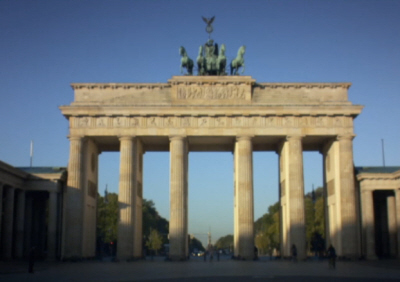
November 1918. The first global war had ended. The emperors and the top-hatted politicians had failed. They’d shattered the optimism of the modern world. For many, especially on the losing side, it seemed that a new order must rise from the ruins, a new kind of politics which needed a ruthlessness the older generation had flinched from. Among the soldiers straggling home from the trenches of the Western front wasn’t angry and embittered 29-year-old corporal; Adolf Hitler.
Like many others, Hitler was looking for someone to blame for Germany’s humiliation. This is the story of the revenge of the nobody. When Adolf Hitler arrived in Munich, he was a nothing. He won a medal in the war, but his fellow soldiers described him as a bit peculiar, a loner, and he’d never been promoted, because the German officers realised that he lacked leadership qualities.
This is also the most extreme example in human history of how one individual can unlock hell.
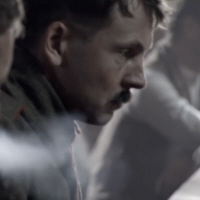
But how did this chaotic loser harness a big idea, fascism, and goose-step Germany into another world war? In a single word, fear. We are all of us susceptible to being scared by events, and then feeling anger, so when people’s savings and jobs are destroyed, which happened in the early 1920s Germany, they panic, then they want revenge.
Hitler’s great good luck was that he offered up his recipe about who to blame at just the moment when rampant inflation had brought Germany to its knees. A loaf of bread for 1 billion marks. But for many the spectre of communism seemed even more frightening than capitalism’s collapse.
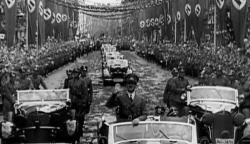
In southern Germany, Munich had been shaken by a Communist uprising put down by troops. Into all of this stepped Adolf Hitler. He joined and took control of a tiny right-wing party. Even redesigned its curious emblem, based on an ancient symbol for good fortune, the swastika.
In this grey defeated city of small angry parties and big angry meetings, Hitler stood out as a star speaker, because he simply went further. He said the unsayable. The Jewish problem would be solved with brute force. Germany would carve a new Empire for herself in Eastern Europe, a greater Germany rising to be a world power, and the people listening to him were soon comparing him to Martin Luther, Mussolini, even Napoleon.
Right At the beginning there was this leader cult. Yet Hitler came across as crazily optimistic. He thought that, by pushing Munich right-wingers into revolt, he could get them to march on Berlin and seize control of all democratic Germany.
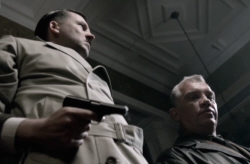
On the night of November the 8th, 1923, a political meeting was being held in one of the city’s beer halls. Hitler hijacked the meeting, declaring, “the national revolution has begun”. But few in the hall were impressed by the jumped-up extremist, and the meeting ended in confusion.
The next morning Hitler led armed supporters onto the streets. But when police fired on them, this revolution by sheer bluff collapsed with embarrassing speed. Two days later, Hitler was arrested. The beer-hall Revolution was a political shambles. It ended in humiliating failure. But it made Adolf Hitler a hero far beyond Munich, because he realised that he could use his trial as a much bigger platform than any that he’d get in a beer Hall.
He was defiant, completely unapologetic, and he was heard all across Germany.
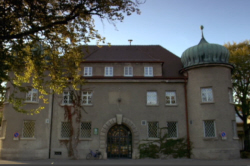
Sympathetic judges give Hitler a soft sentence for treason. He was imprisoned in the nearby town of Landsberg.
Hitler’s rooms were soon crammed with unrestricted visitors and parcels and messages. One particularly gushing letter came from a student in Heidelberg called Joseph Goebbels, and as for the parcels, it was like a delicatessen. One visitor said you could have opened a flower, fruit and wine shop with all the stuff stacked up in there, and Hitler began to become rather fat from all the chocolates and the cake. Eventually he had to usher the visitors out so that he could settle down and dictate his memoirs to a man called Rudolf Hess.
The Fuehrer was emerging. But he had a truly terrible title for his book; Four and a half years of struggle against lies, stupidity and cowardice, shortened by his shrewder publisher into My Struggle or Mein Kampf, and in it he said exactly what he thought. “The Jews are a pestilence worse than the Black Death. The day will come when a nation will arise which will be welded together that shall be invincible and indestructible forever.”
Mein Kampf argued that capitalism and communism were equally dangerous and that Jews were behind both, pulling the strings from Wall Street and Red Square. In other times and places, few would have listened to such a crackpot theory, but by the early 1930s, the Great Depression starting in America had thrown people out of work across the world, while the looming menace of Stalin’s communist state haunted millions.
There are times when the politics of fear become irresistible and nonsense seems common sense. Eventually, the Nazi party did very well in elections. Hitler came to power not as a tyrant but entirely legally. During the 1930s, no other major political leader had his level of popular support. It was support based on the violent creation of a new German Empire in Europe, the destruction of Europe’s Jews, which was all laid out in black-and-white.
History is full of nasty surprises. Adolf Hitler did his very best not to be a surprise.
